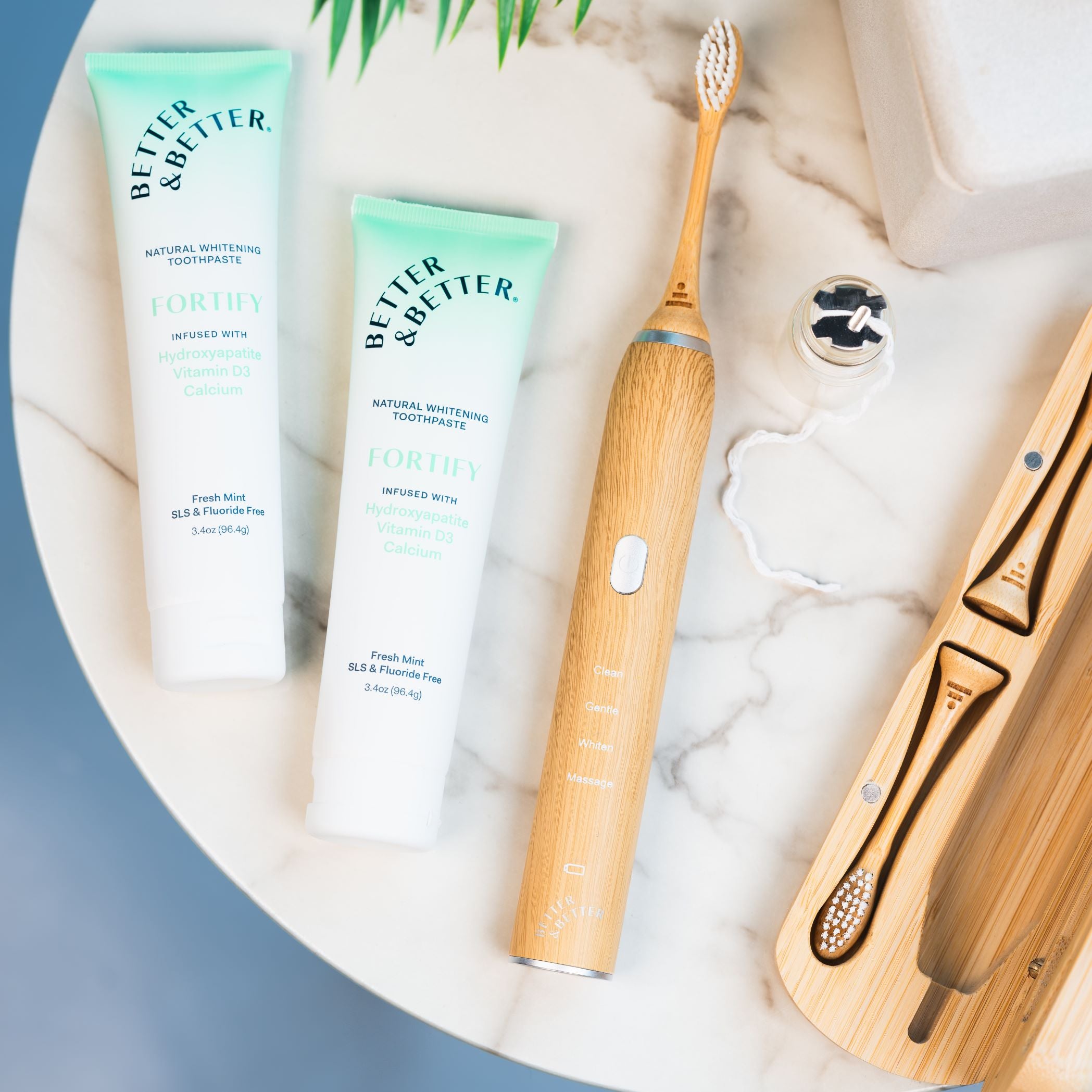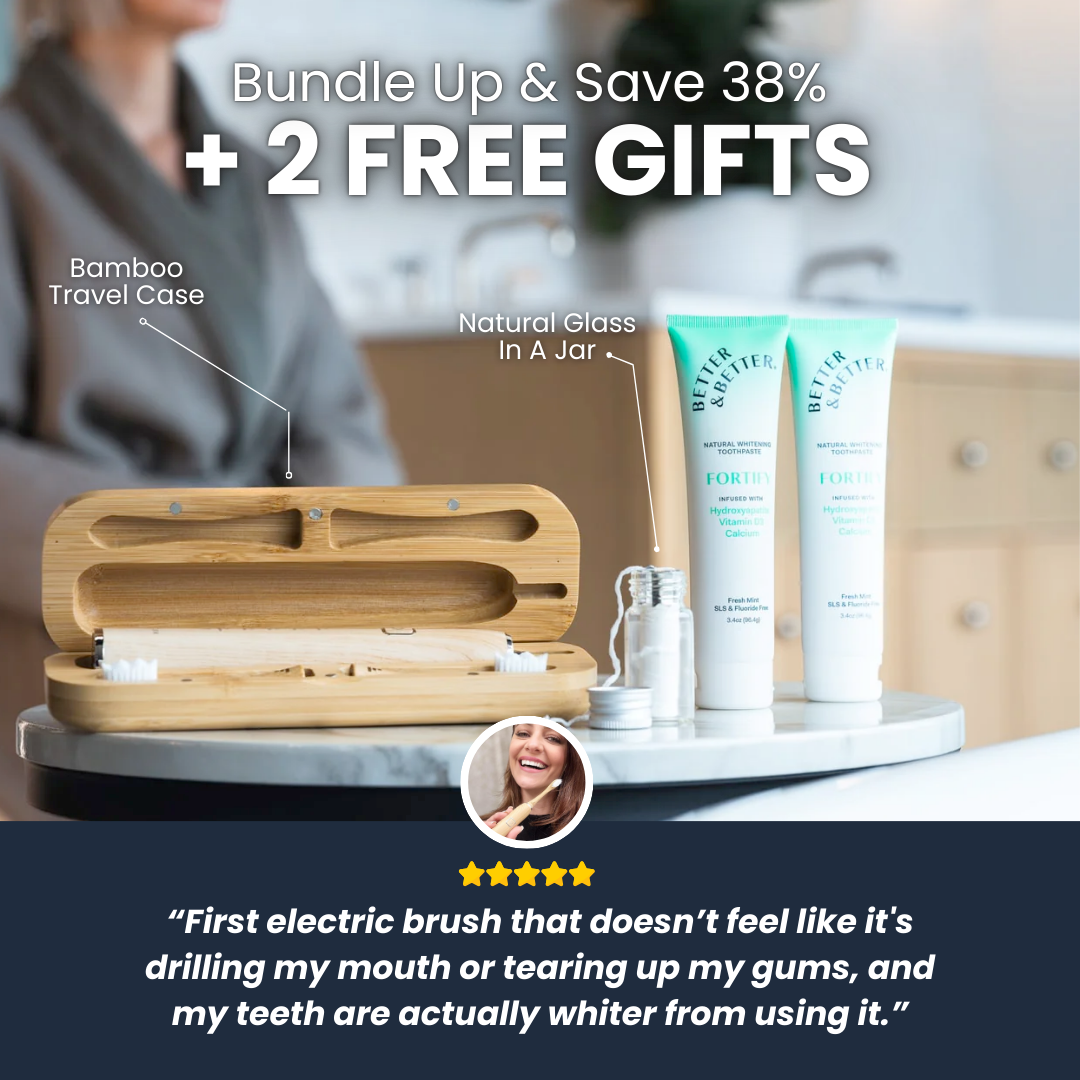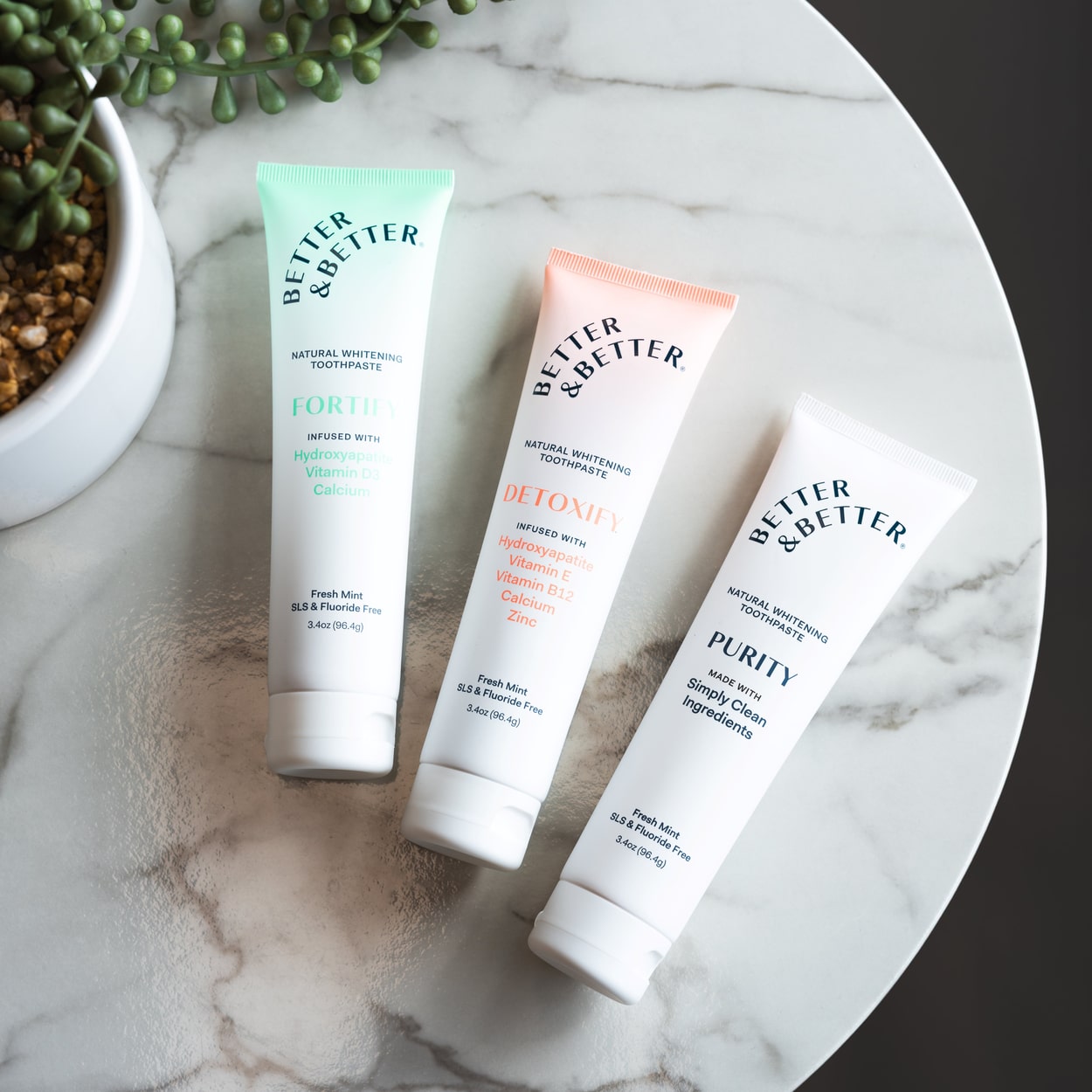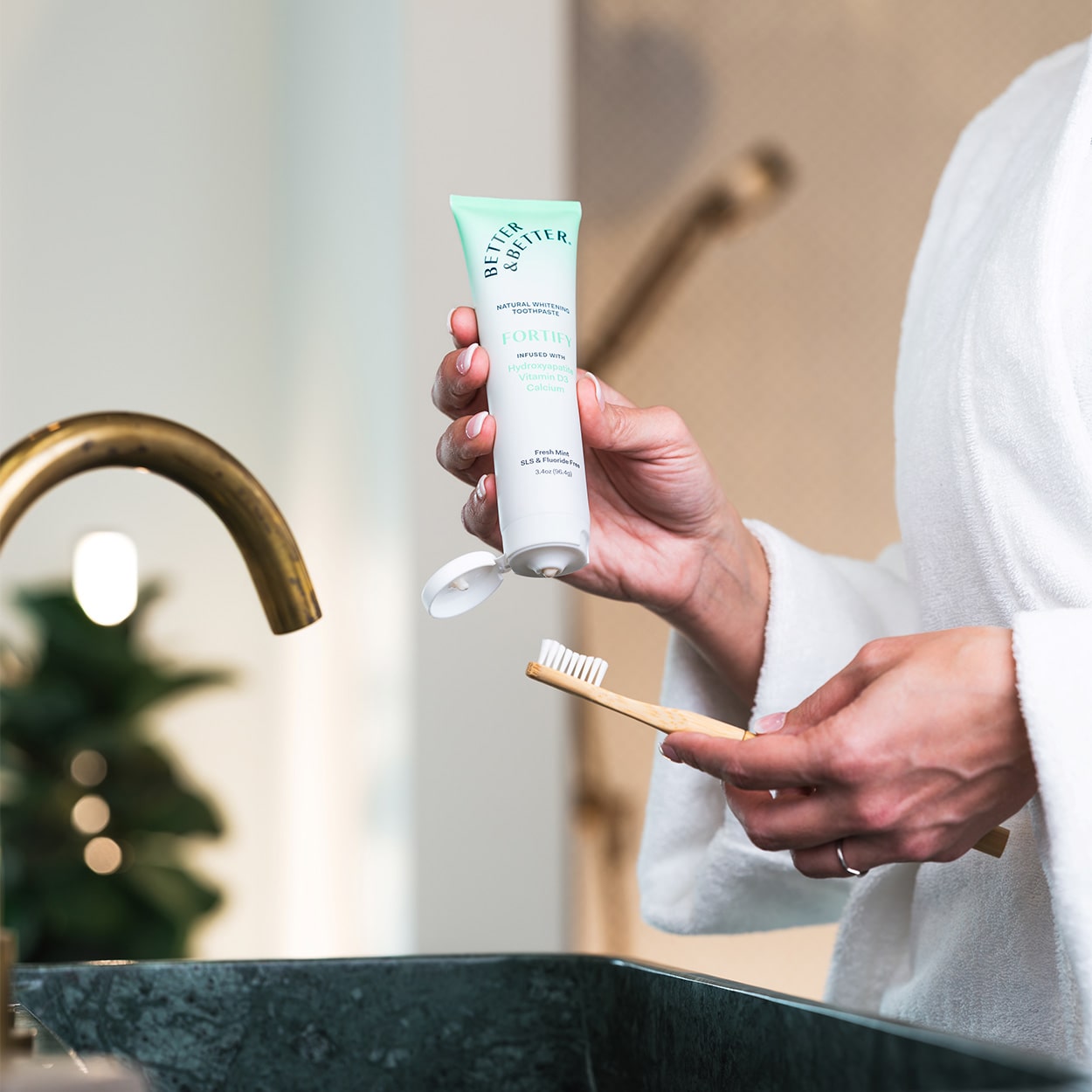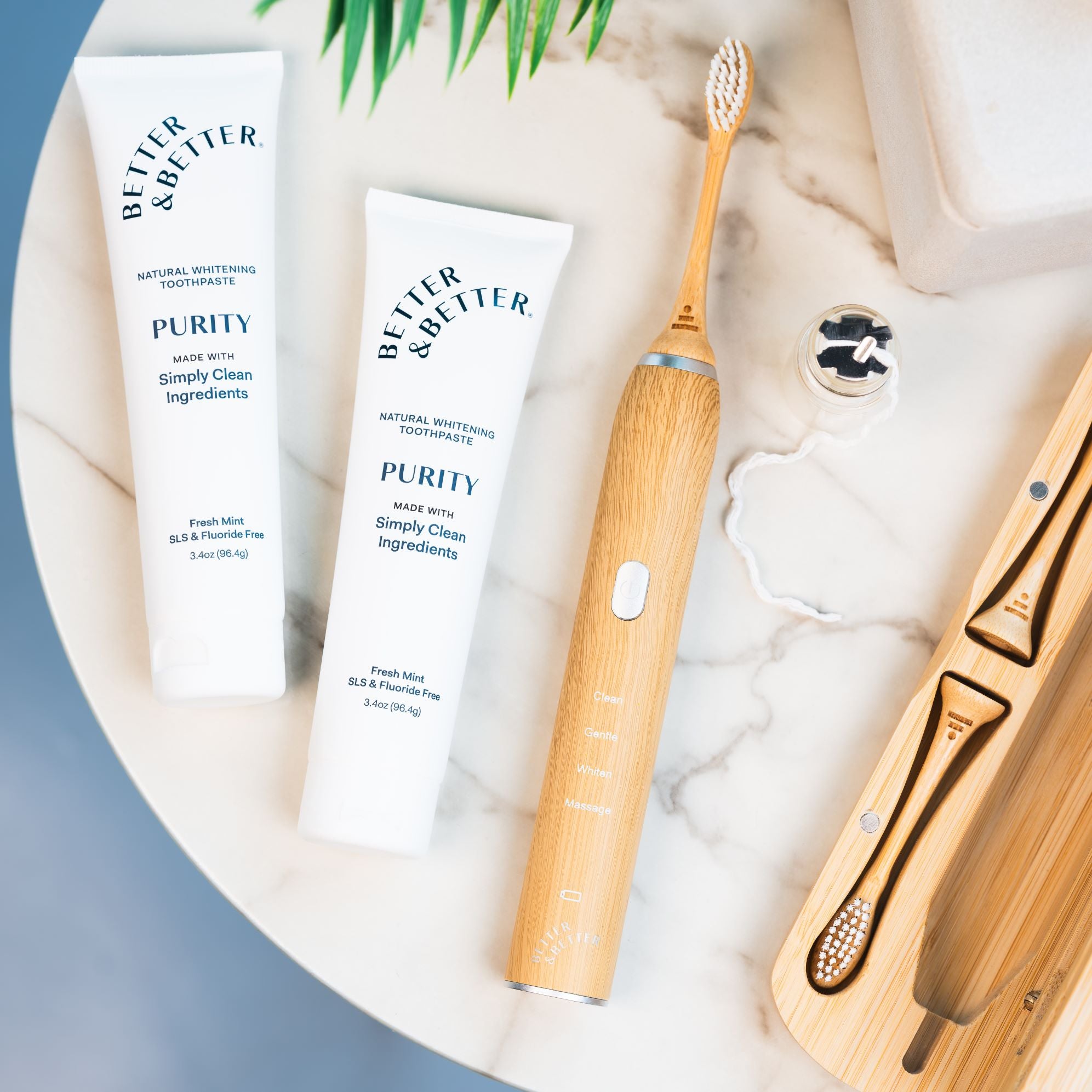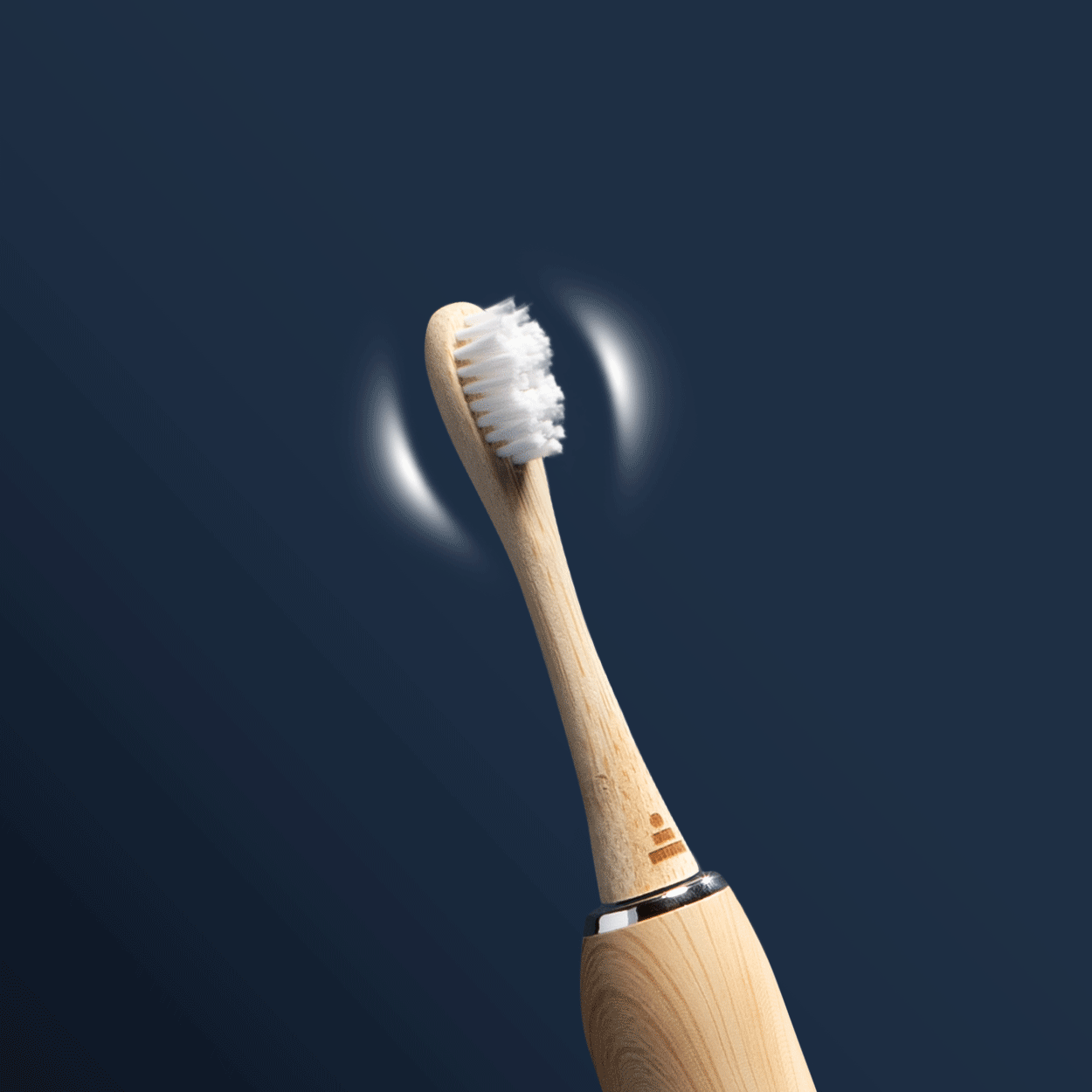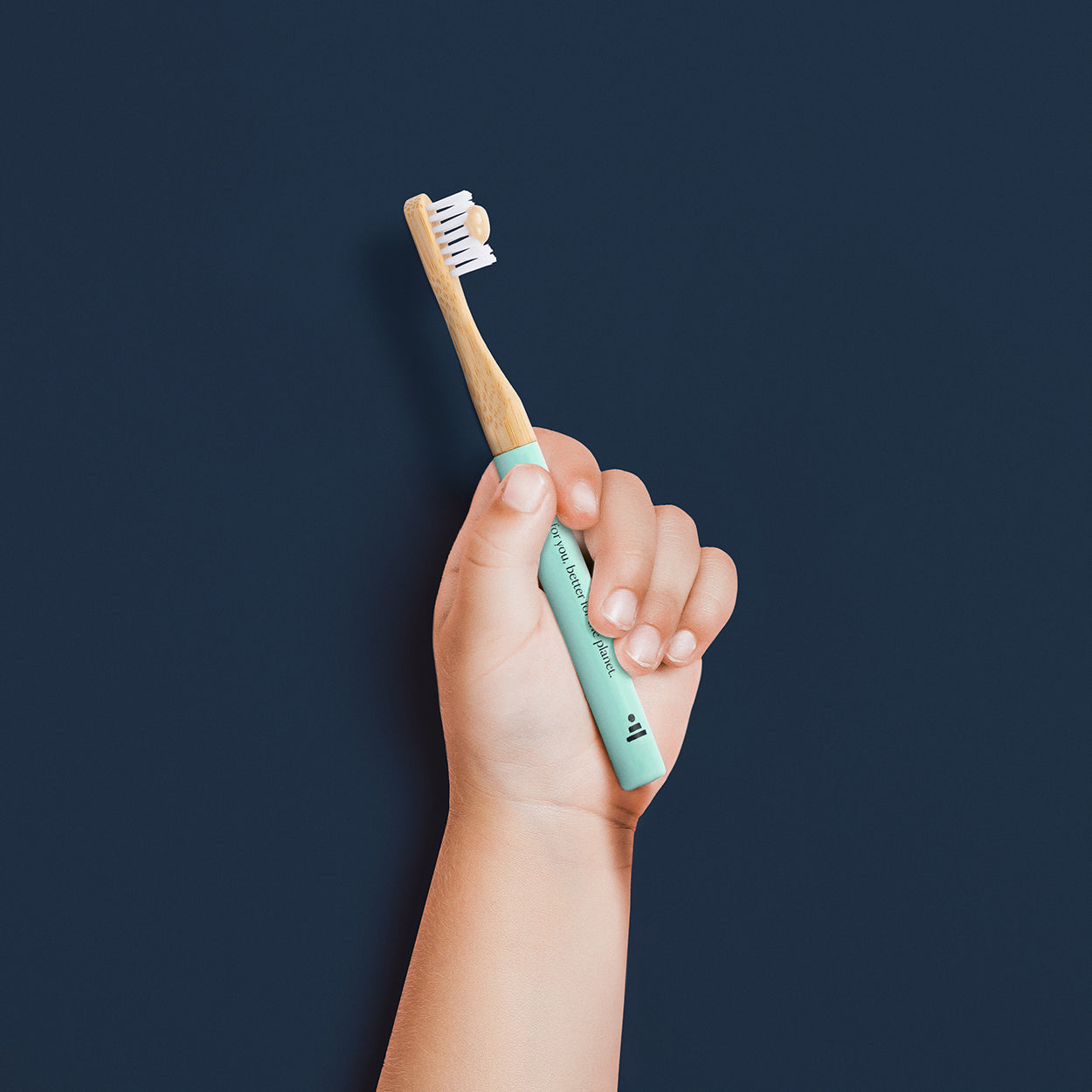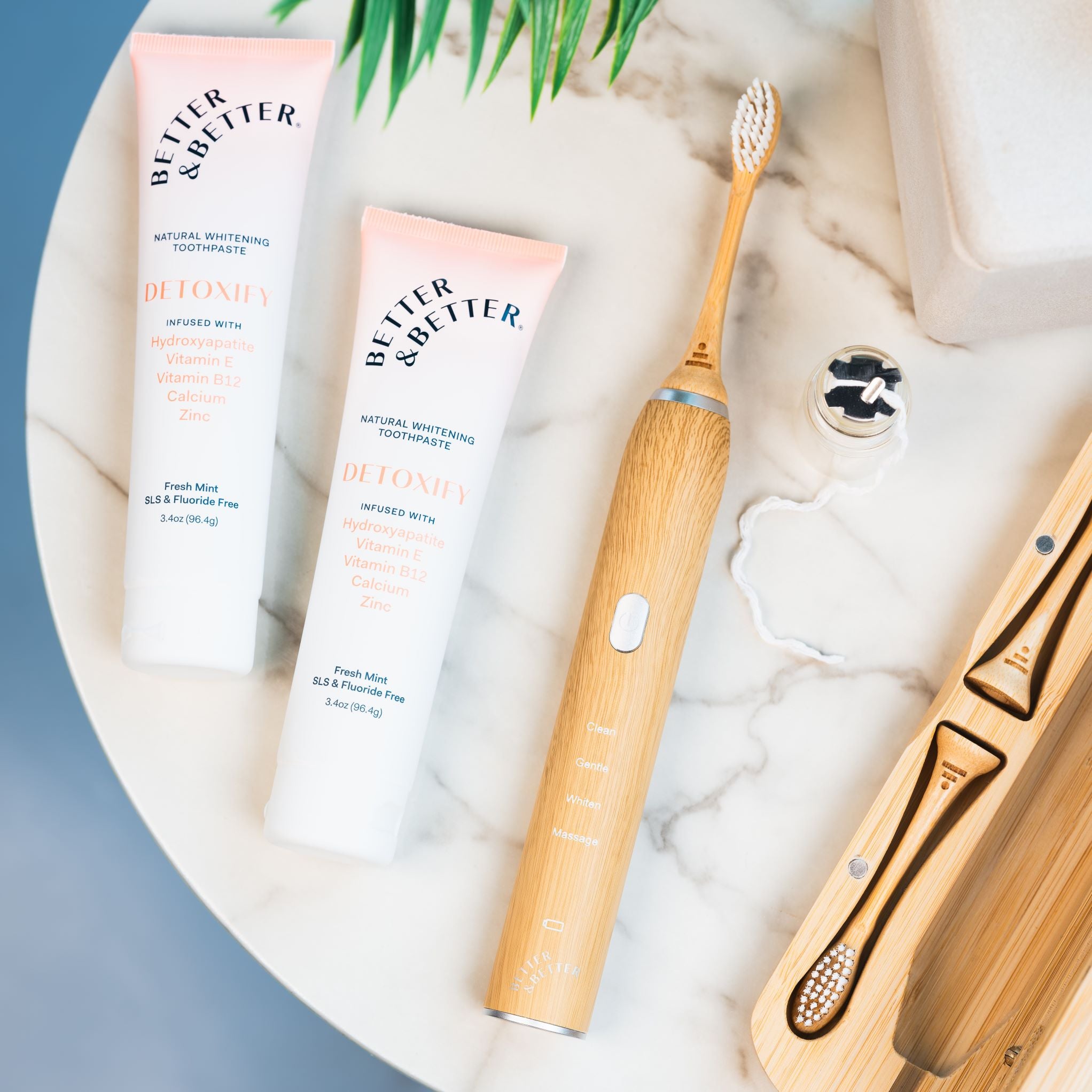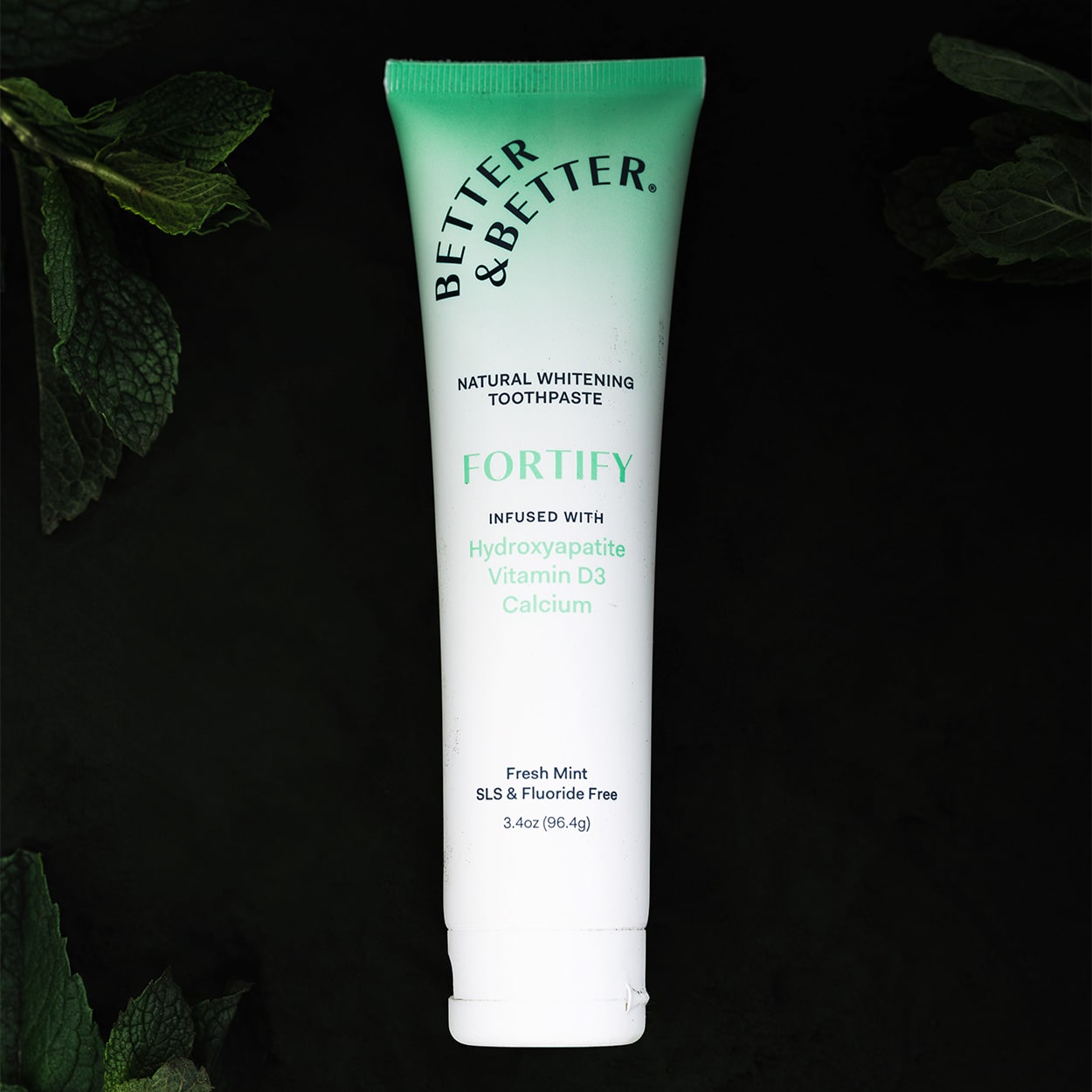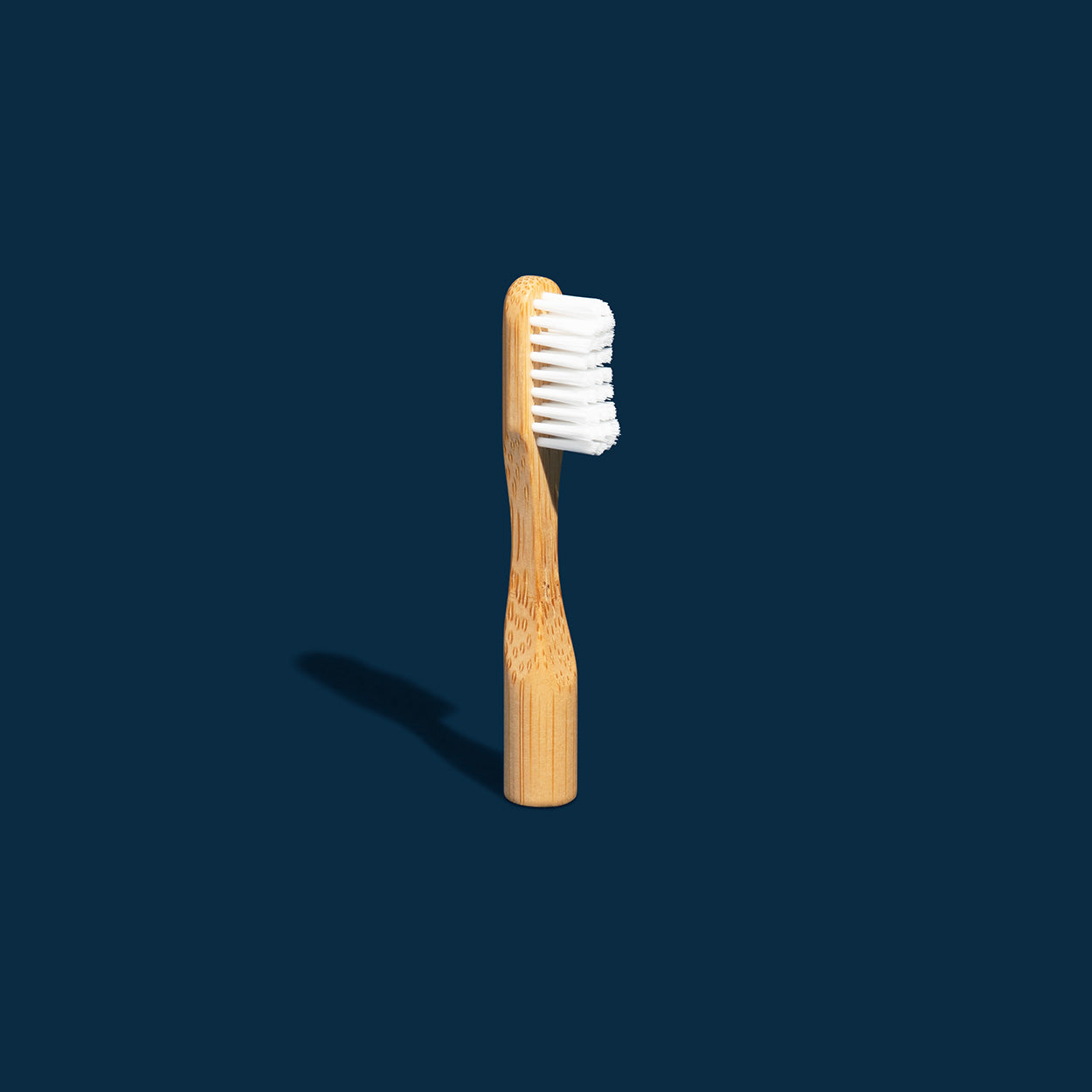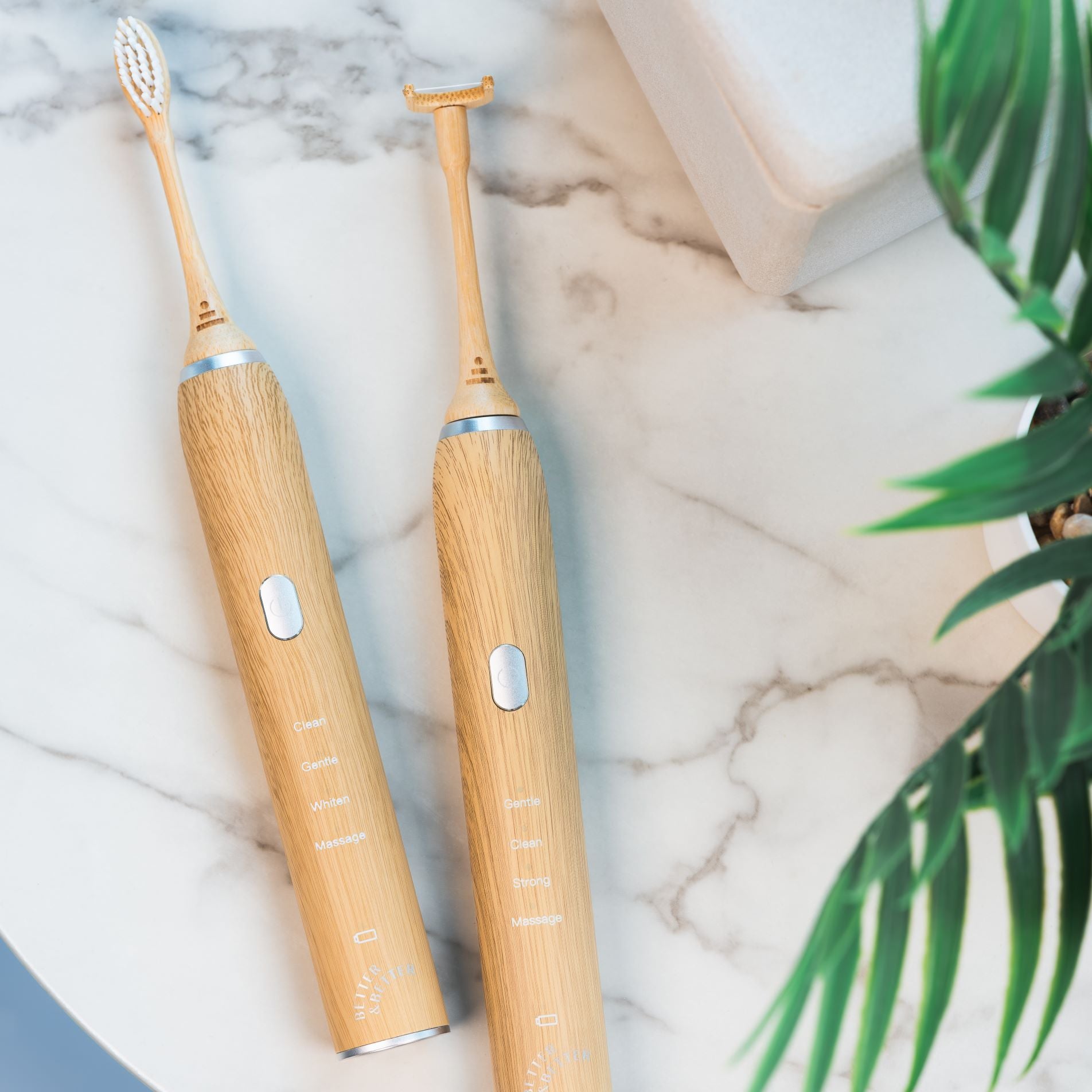Micronutrients & Your Mouth
Many of us have at least some idea of what vitamins and minerals we need to take to nourish our bodies, but what about our mouths?
Of course, we use our mouths to swallow and consume vitamins. But before they get sent to different parts of the body, your mouth makes use of them, too.
In this article, we are going to explore this question for four micronutrients your teeth, gums, and oral microbiome need to stay healthy: vitamin B12, vitamin D3, vitamin E, and zinc.
Vitamin B12
Vitamin B12 is most commonly known for increasing energy and mood. But what does it do for your mouth?
Well for one thing, it can help prevent canker sores. Both forms of supplemental vitamin B12, cyanocobalamin and methylcobalamin, may benefit individuals with recurring canker sores—even those with normal B12 levels.
When taken sublingually, it can take months before it starts significantly reducing the duration of canker outbreaks, the number of ulcers, and the level of pain. I recommend that those who have recurring canker sores check with their physician to better understand their optimal daily dosage.
Vitamin B12 can also boost your energy levels, promote healthy gums and oral tissue, and aid in healing wounds in the mouth.
Vitamin D3
Vitamin D3 is most commonly known for its role in immune system function, and the formation and maintenance of strong bones. It is crucial to your oral health because vitamin D3 helps your body absorb calcium, which is essential for healthy teeth and gums.
Researchers have linked a vitamin D deficiency to two main oral issues: increased risk of tooth decay, and gum disease. Vitamin D also plays a key role in absorbing and retaining calcium for bone and tooth mineralization. When your vitamin D levels are low, it can weaken your teeth, making you more likely to be prone to cavities, fractures, and tooth decay. Weak or brittle teeth may easily break, chip, and can even crack.
Here are some other ways you can incorporate more Vitamin D into your life:
Eat more foods that are rich in vitamin D, like cod liver and salmon. If you aren’t into seafood, you can instead incorporate more milk, and cereals that are fortified with vitamin D.
You can also try a vitamin D supplement. Your physician can recommend a proper dosage based on your needs. Having your labs done can also assist with this.
Vitamin E
Vitamin E provides numerous benefits to teeth and the oral cavity, and is often used by dentists to treat or manage oral problems. It’s especially useful for treating problems related to the gums. Vitamin E is crucial for gum health and healing, and may aid in treating periodontitis and gum disease. It does this by fighting bacteria and boosting the immune system.
Vitamin E supplementation, combined with a type of deep dental cleaning we call scaling and root planing, can reduce the inflammatory process of periodontitis, and decrease the amount of attachment loss (when the gums become so inflamed they detach from the teeth).
Zinc
Zinc is a mineral that is critical for several vital functions in our bodies. Its primary role is to ensure the proper functioning of our cells — both their growth and division. It also helps your immune system and metabolism.
In terms of oral health, zinc can help fight bad breath, increase saliva production, and prevent dry mouth.
Dental studies have shown that bad breath is often linked to zinc deficiency. Upping your zinc intake, whether by taking a daily supplement or using a zinc-infused toothpaste or mouthwash, can help reduce foul odors in the mouth.
To combat bad breath from zinc deficiency, you can also consume more zinc-rich foods like pumpkin seeds, asparagus, and zucchini, and try adding a tongue scraper to your routine.
Too little zinc can also negatively affect one’s oral health by causing dry mouth, a loss of sensation in the tongue, and even a bad taste in your mouth.
Check with your doctor to get proper dosage on how much you should consume daily.
The Bottom Line
To recap, if you want to ensure proper oral health care, make sure to take your vitamins, including vitamin B12, vitamin D3, vitamin E, and zinc.
And if you hate consuming vitamins daily, then also you can get your vitamins from Better & Better toothpaste. When you brush with vitamins (or spray your vitamins) they get absorbed through the tissues in your mouth, and go straight into the bloodstream. It’s an excellent way to get your vitamins without having to add a step to your routine.
Energy toothpaste is your go-to for vitamins D3 and B12, and Immunity toothpaste will up your levels of vitamins C, E, and zinc. For even better results, I like brushing with Energy in the morning, and Immunity at night.
And as always, don’t forget to check with your physician when it comes to your overall health, and check with your dentist about your oral health. Keep going to those yearly appointments!
Dr. Jaclyn Tomsic, MD, DMD, FACS, is a board-certified Oral and maxillofacial surgeon (OMF) based out of Cleveland, OH. OMF involves extensive dental and medical education and training to achieve surgical expertise and an unparalleled understanding of esthetics.



